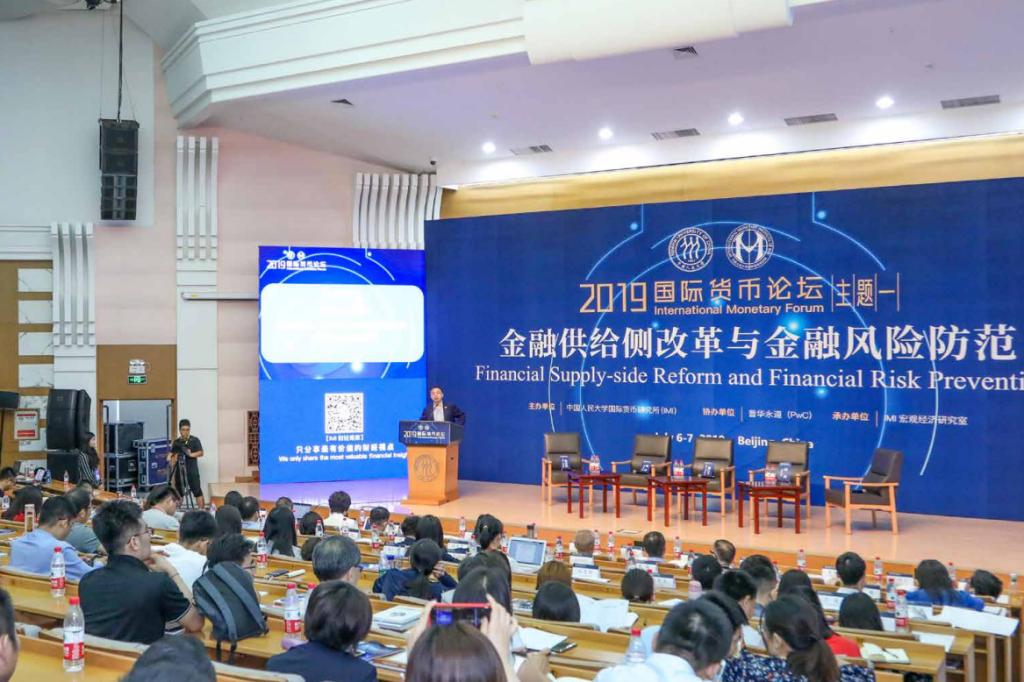About SFRUC
About SFRUC
The 1st school to open Advanced Finance courses in China since 1950
Wrote the 1st textbook of Finance and Public Finance in China
Finance and Public Finance rank as Top1 discipline by China's Ministry of Education
‘Double First-class’ university curriculum construction list
Famous alumni ranking top 3 by Chinese Universities Alumni Association (CUAA)
In 2019, SFRUC became an official member of the FinTech Committee of the China Society for Finance and Banking
In 2020, SFRUC becomes the 1st school in China that offers a fully English taught master program of FinTech for international students

SFRUC has long established a series of signature forums and lectures on finance and economics, including China Capital Market Annual Forum, China FinTech Annual Forum, International Monetary Forum, Huang Da-Mundell Open Lecture (named after Prof. Huang Da, key founder of China’s advanced Finance studies and Prof. Mundell, Nobel Economics Prize Winner) and many others.
In the meantime, the school has more than 20 research centers and think tanks, including the world top-ranking Chongyang Institute for Financial Studies,well- known for its “Belt and Road” studies and also the newly found RUC FinTech Institute in 2018 which has produced lots of influential FinTech reports and research projects. These platforms provide students abundant opportunities to exchange thoughts with distinguished scholars and industry leaders.
Influential Academic Reports of SFRUC

Annual Evaluation Index Report on China’s Top FinTech Companies and FinTech Leaders
Annual Research Report on China’s Capital Markets
Annual Report on the Wealth Management Development Index of China
Annual Report of Renminbi Internationalization
Annual Report of Financial Inclusion Development in China
Advantages of RUC FinTech Institute
In 2018, RUC FinTech Institute was founded as a new type of think tank and research institute focusing on the theory, application and policy of FinTech. The Institute makes full use of the University's interdisciplinary advantages in finance, economy, management, statistics,law, and computer science. It also provides decision-making references for promoting the heathy and sustainable development of the FinTech industry as a diversified platform with industry, academic, research and policy experts.
RUC FinTech Institute's research team have published When you go ahead, could the cloud go away? ——2016 China P2P Industry (Zhejiang University Press, 2016), Blockchain Finace (CITIC Press, 2016), Financial Blockchain: The Next Financial Revolution (Machinery Industry Press, 2017), Finance Science and Technology Revelation (China Finance Press, 2018), China Financial Technology Operation Report 2018 (Social Science Literature Publishing Press, 2018), Internet Finance Illegal Fund Raising: Analysis of Ten Classic Cases (China Finance Press, 2019), and other works. The institute have also published dozens of academic papers and research reports on financial technology in core journals at home and abroad. It also hosted more than 30 FinTech Public Lectures with honor guests from FinTech industry leaders, policy makers and scholars.

The Institute’s Academic Committee
includes scholars in the interdisciplinarystudies in finance, economics, management, statistics, law, computer science, etc. and experts from regulatory organizations and the industry.

Heritage of RUC
Founded in 1937, RUC is a key comprehensive and research-orientated university.It is located in Zhongguancun area in Haidian District of Beijing, best known as "China's Silicon Valley".Due to the number of universities and colleges located in this district, the area has a young demographic and a very vibrant and dynamic feel.

13 national key research bases of humanities and social sciences, ranking No.1 in China;
16 national key disciplines of humanities and social science, ranking No.1 in China;
1951 faculty, including 722 professors and 783 associate professors 28,494 full time students, including 11991 undergraduate students, 11602 graduate students, 4901 doctoral students and 1199 international students.
-

